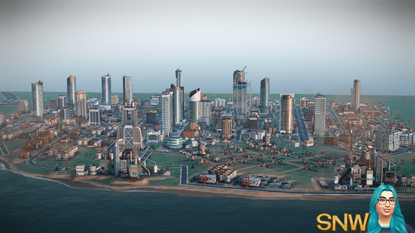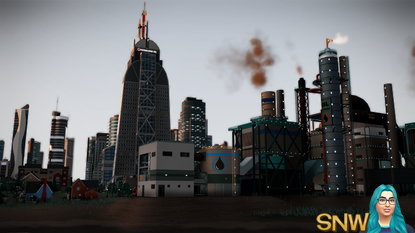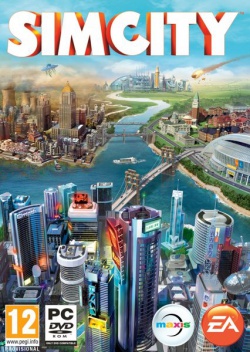Reviews: Our SimCity Review
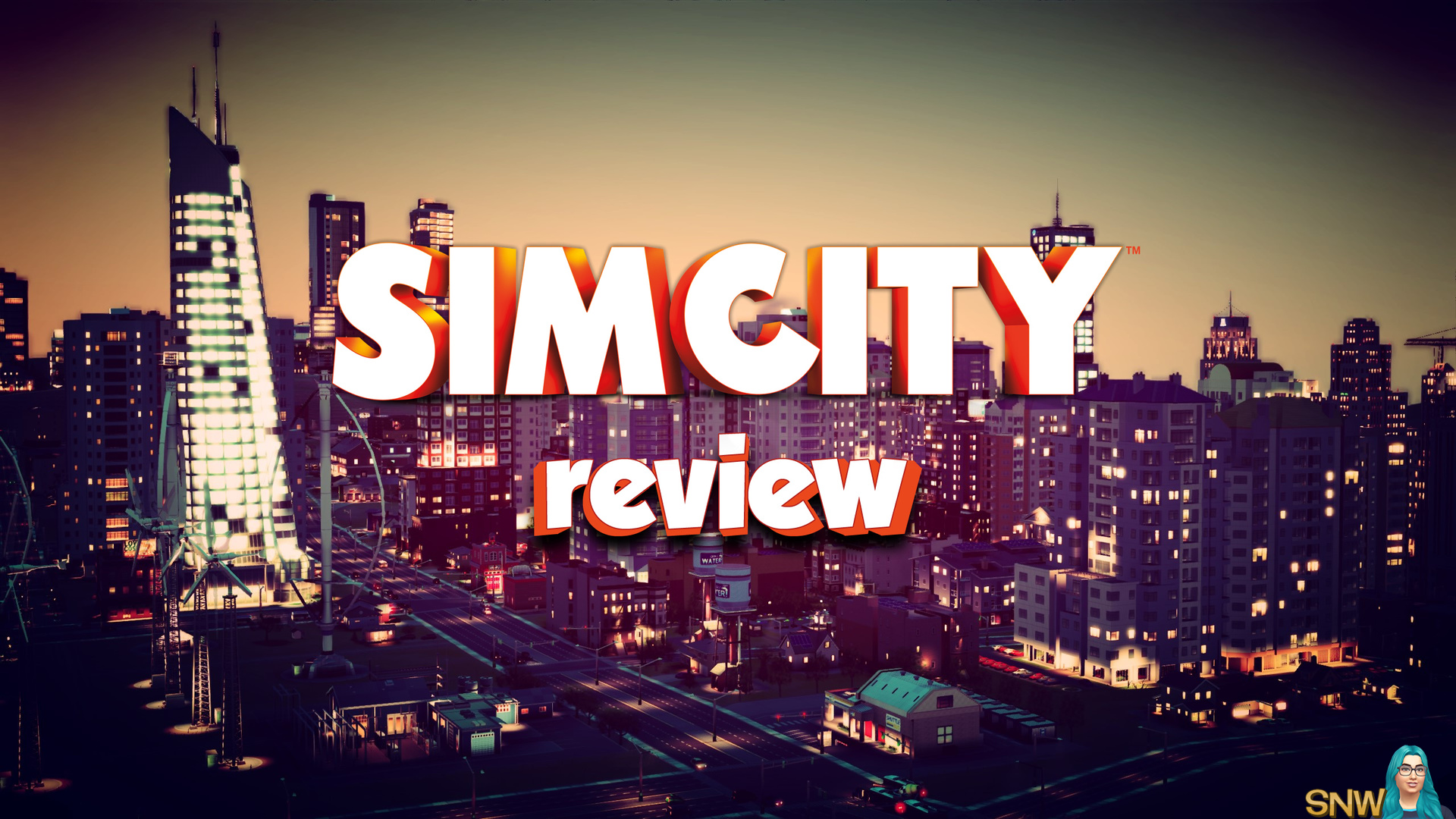
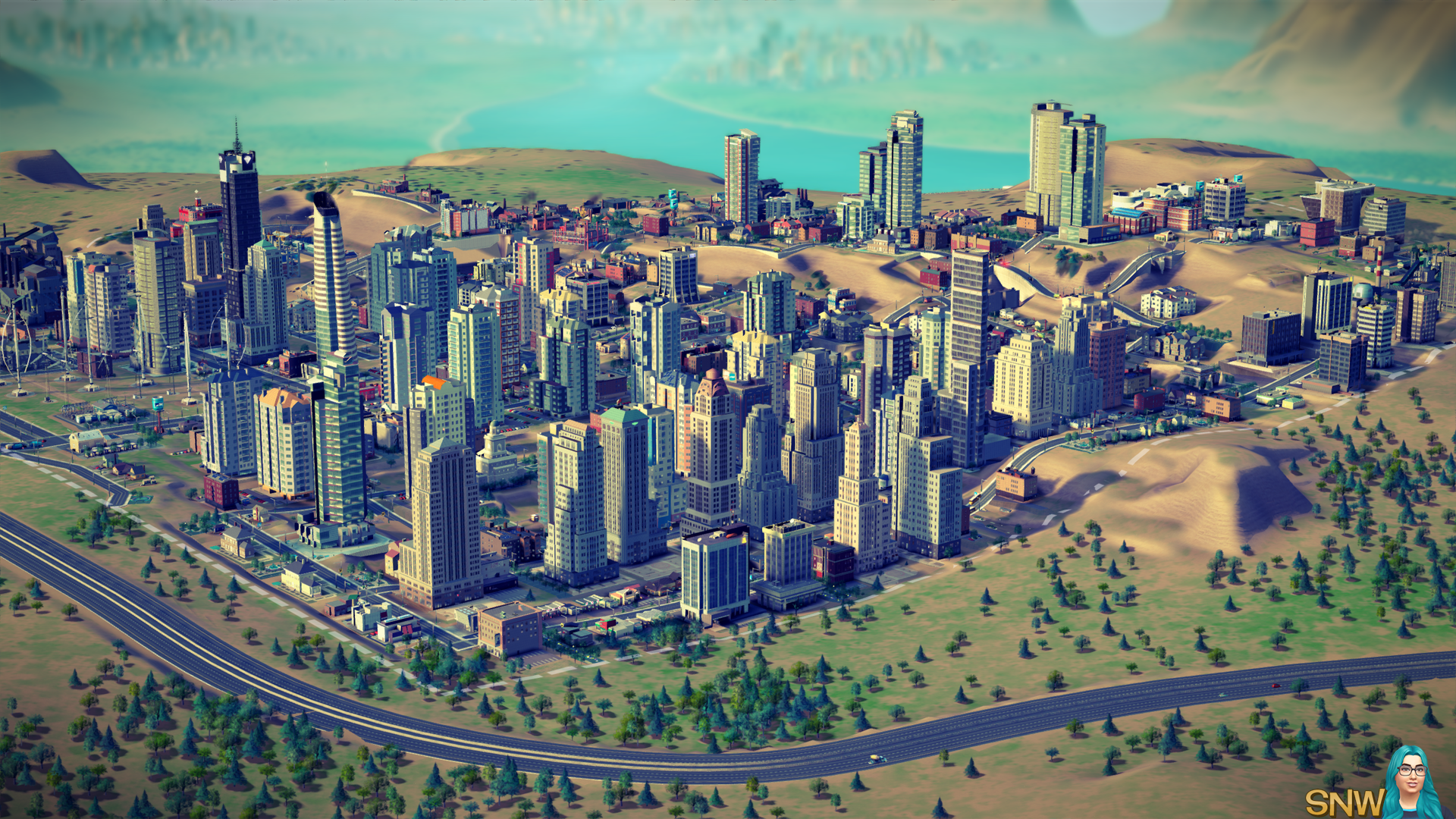
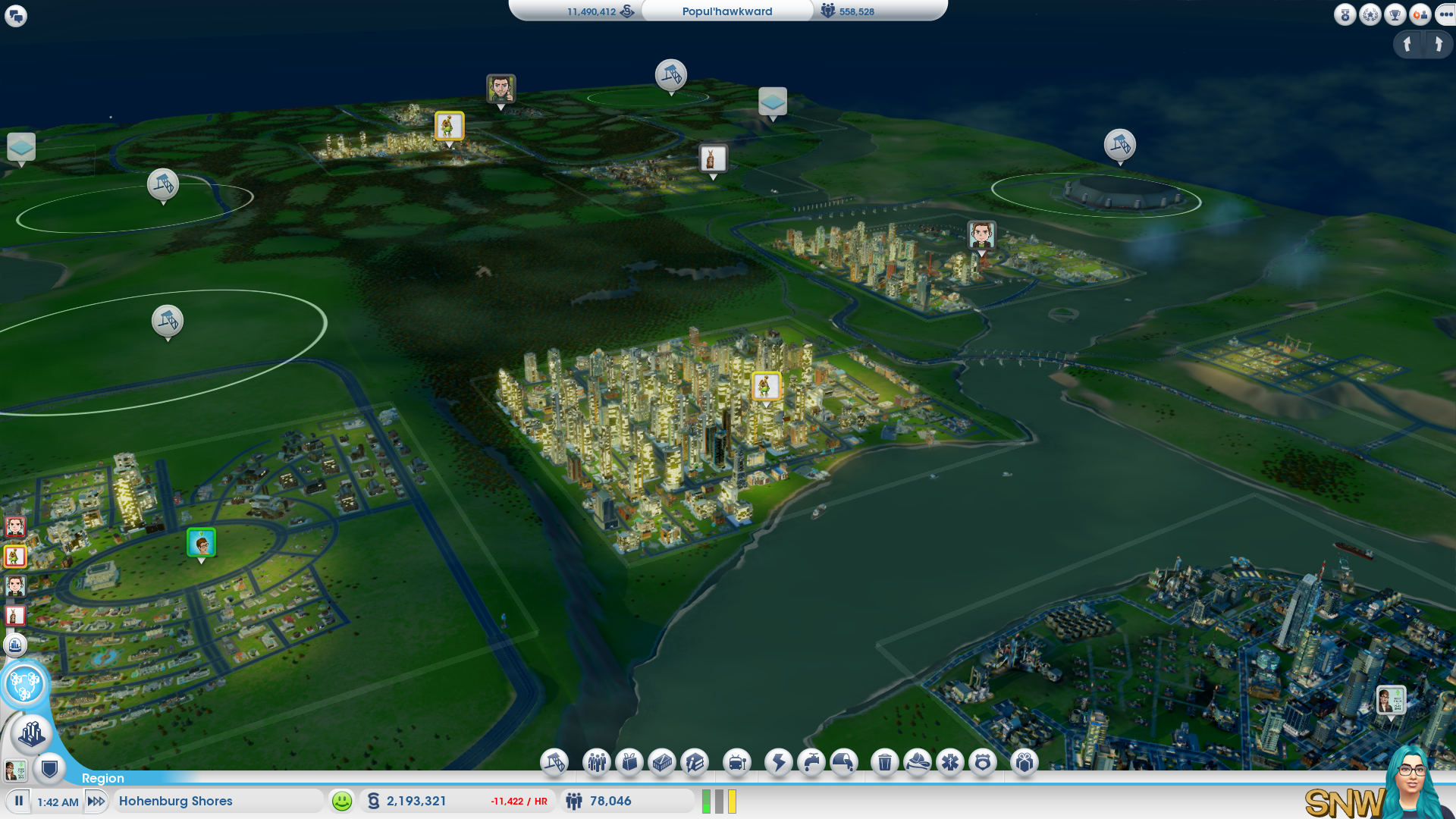
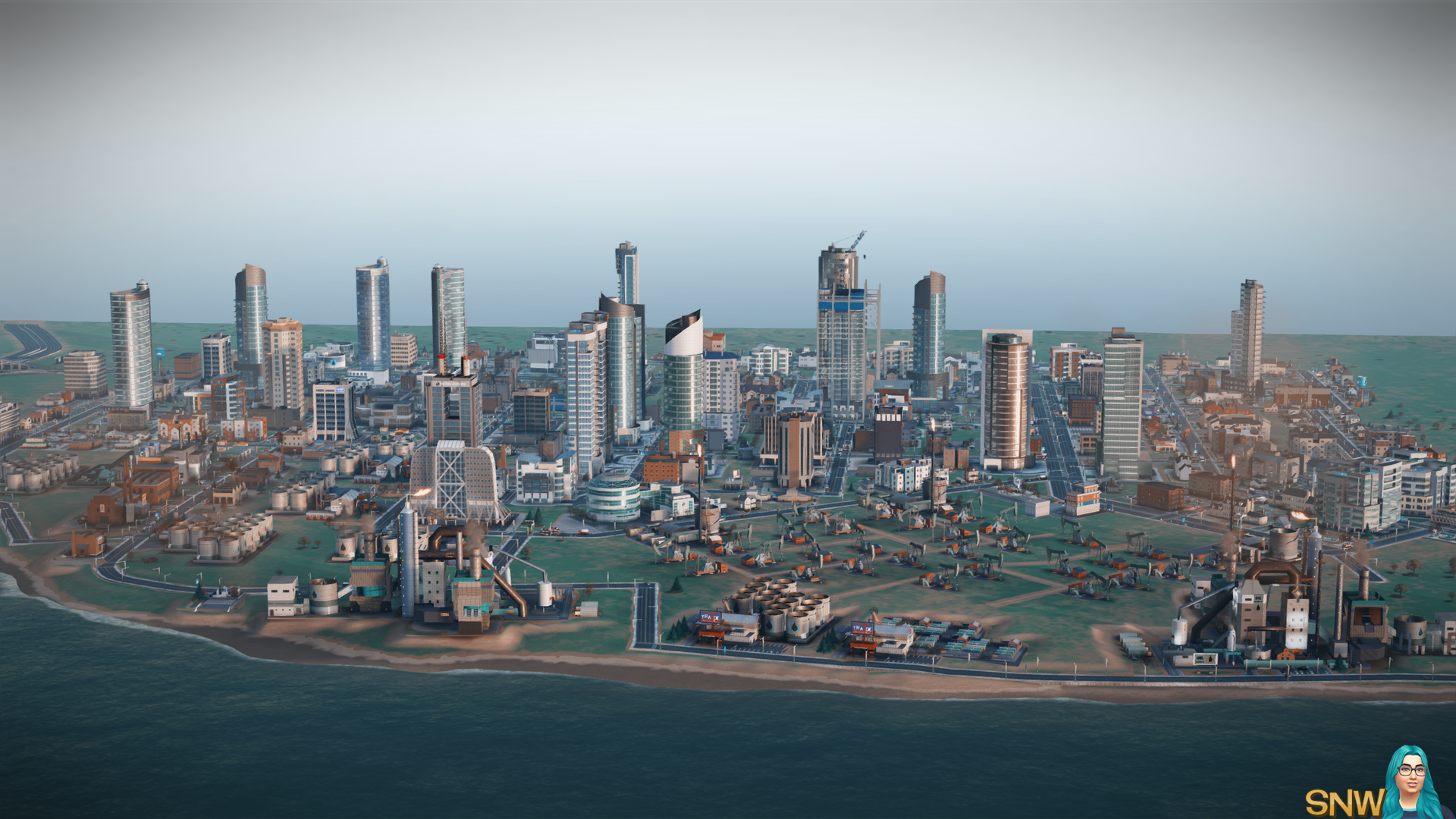
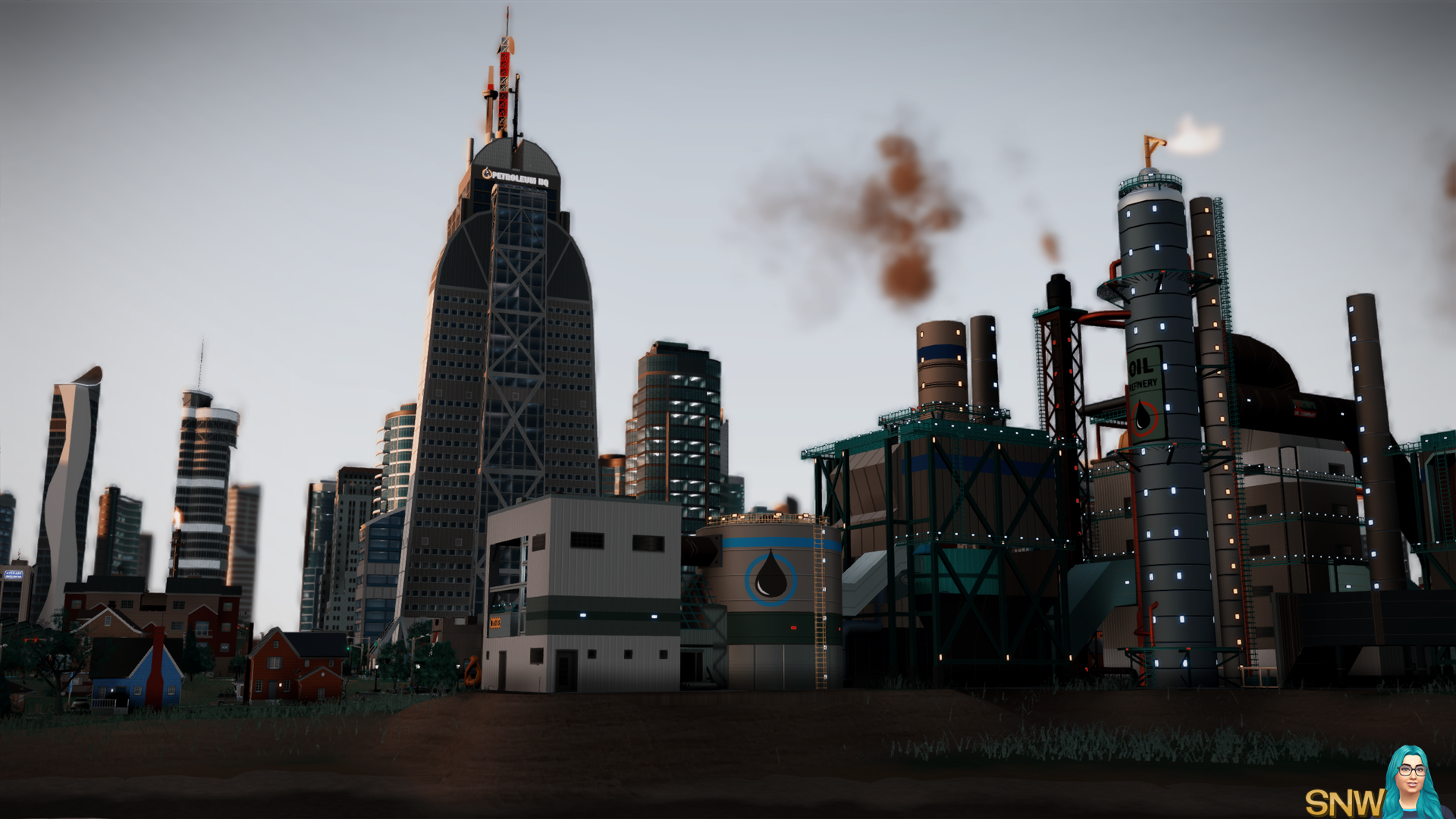
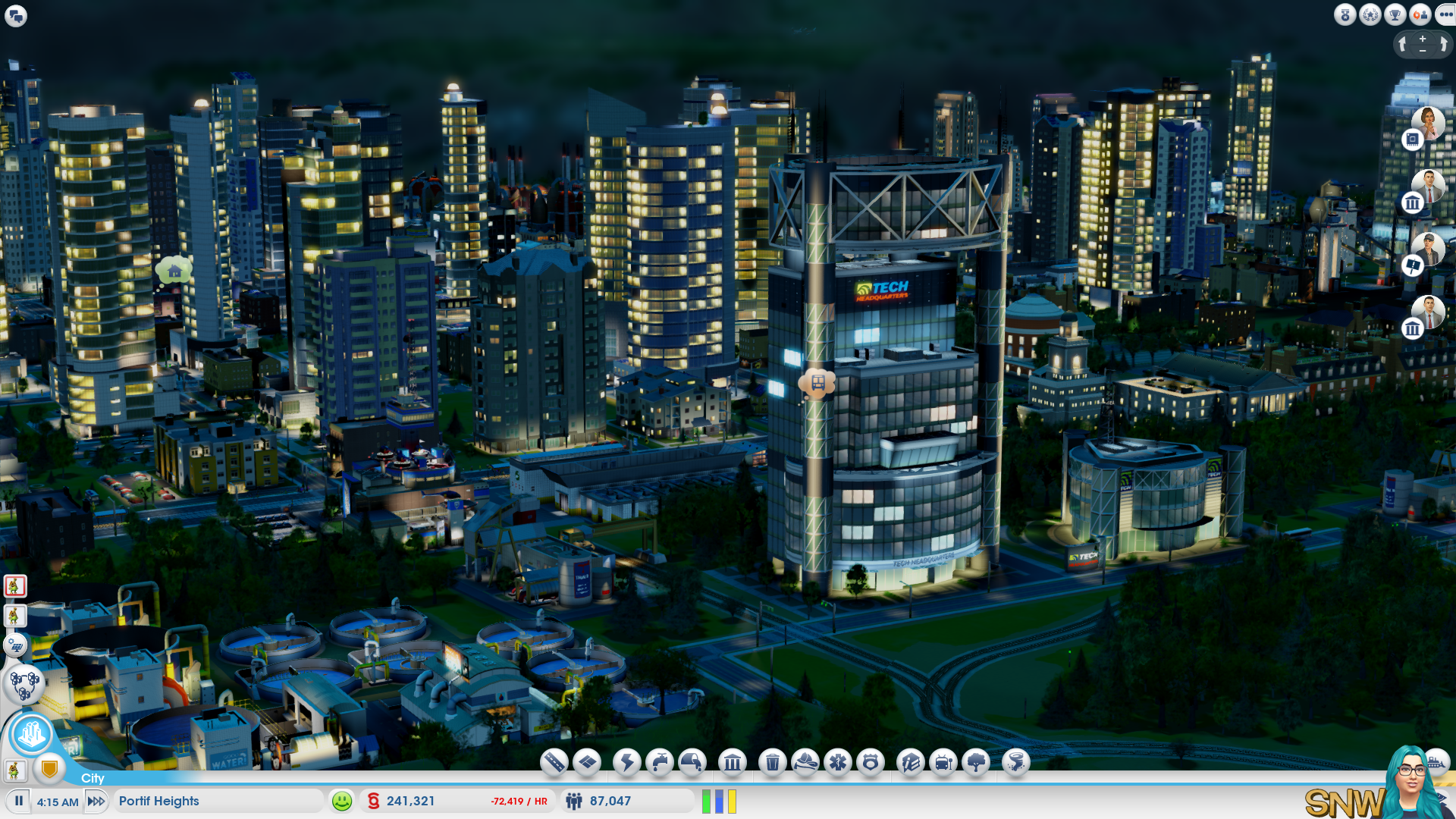
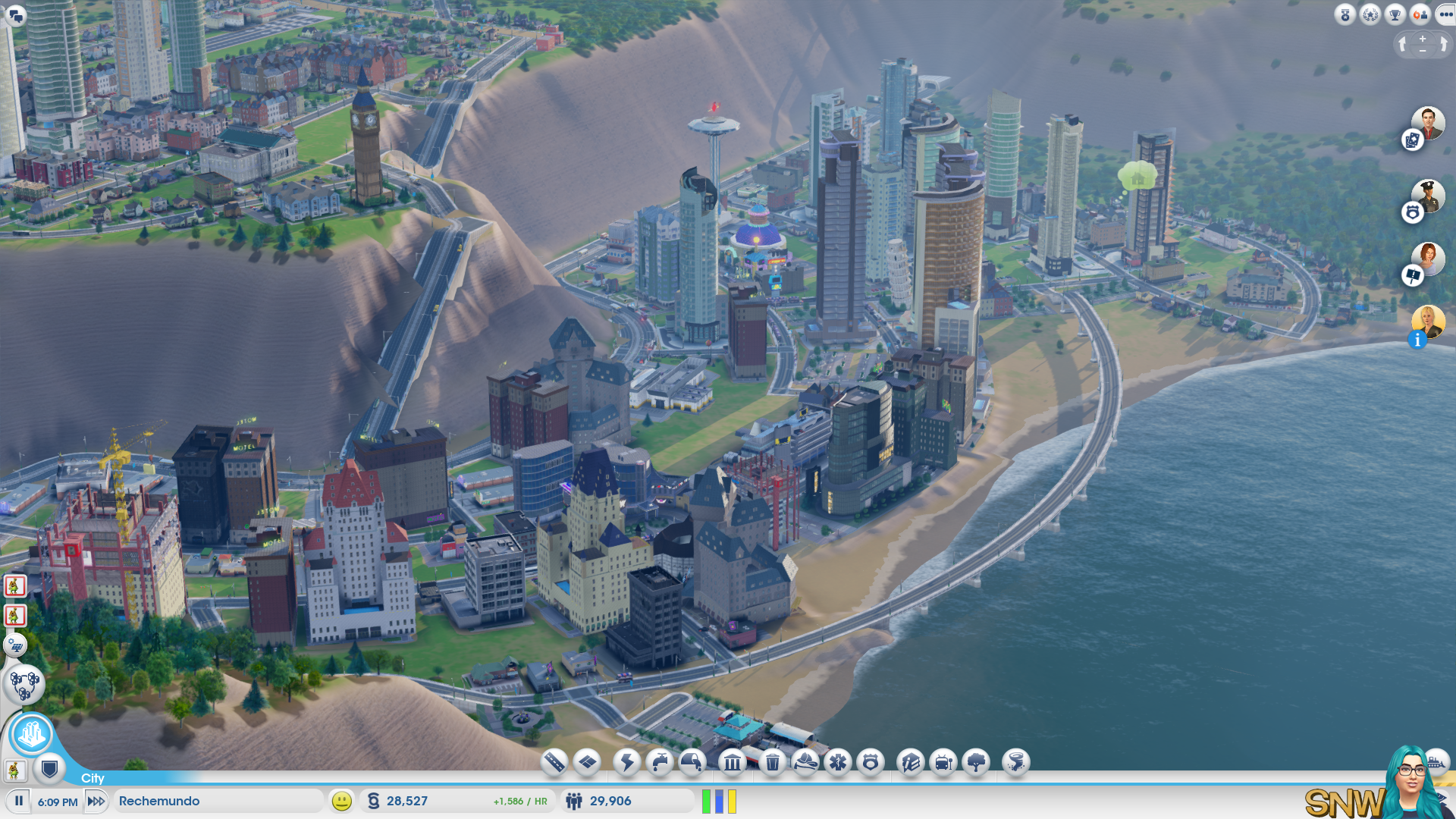
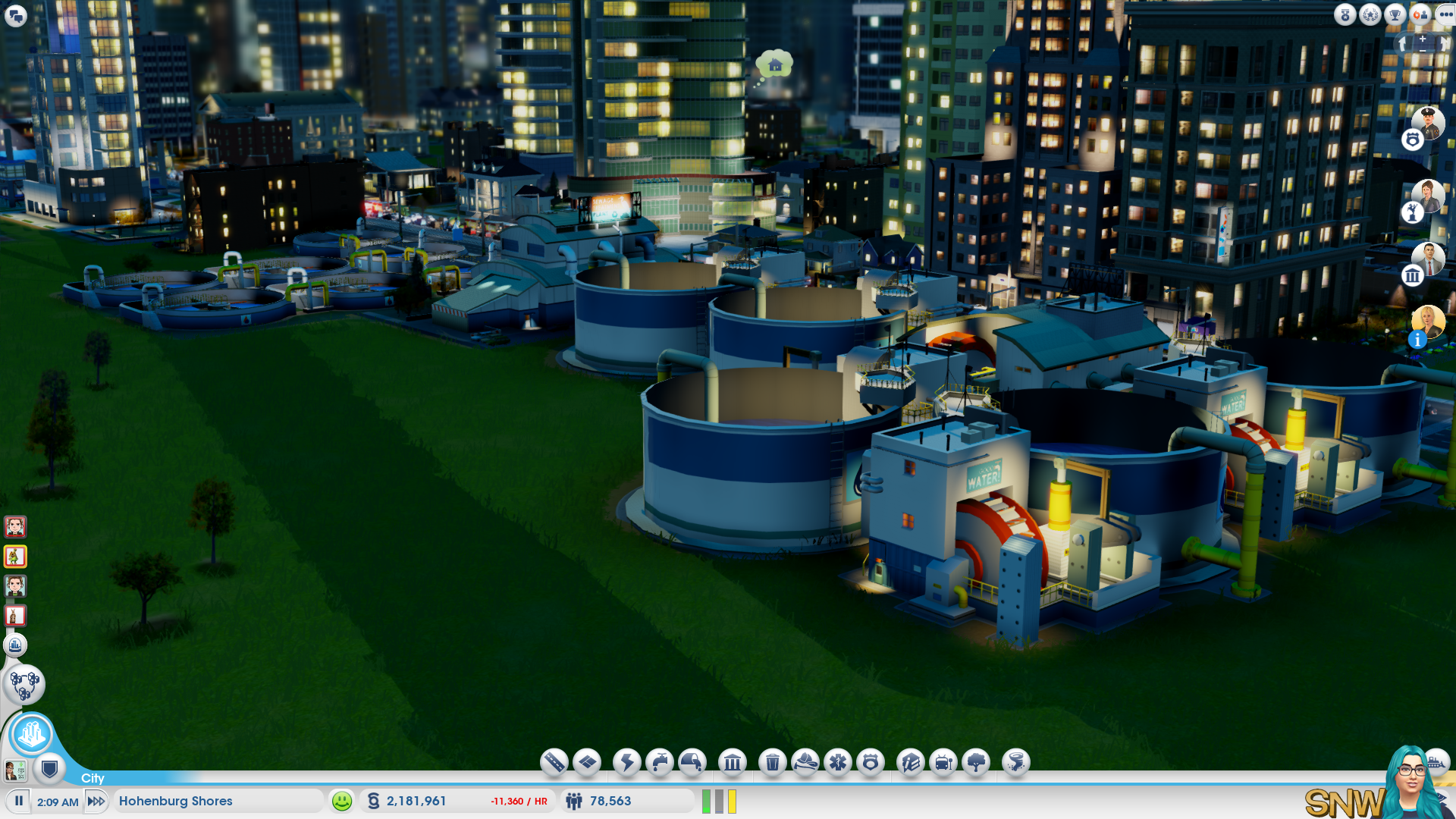
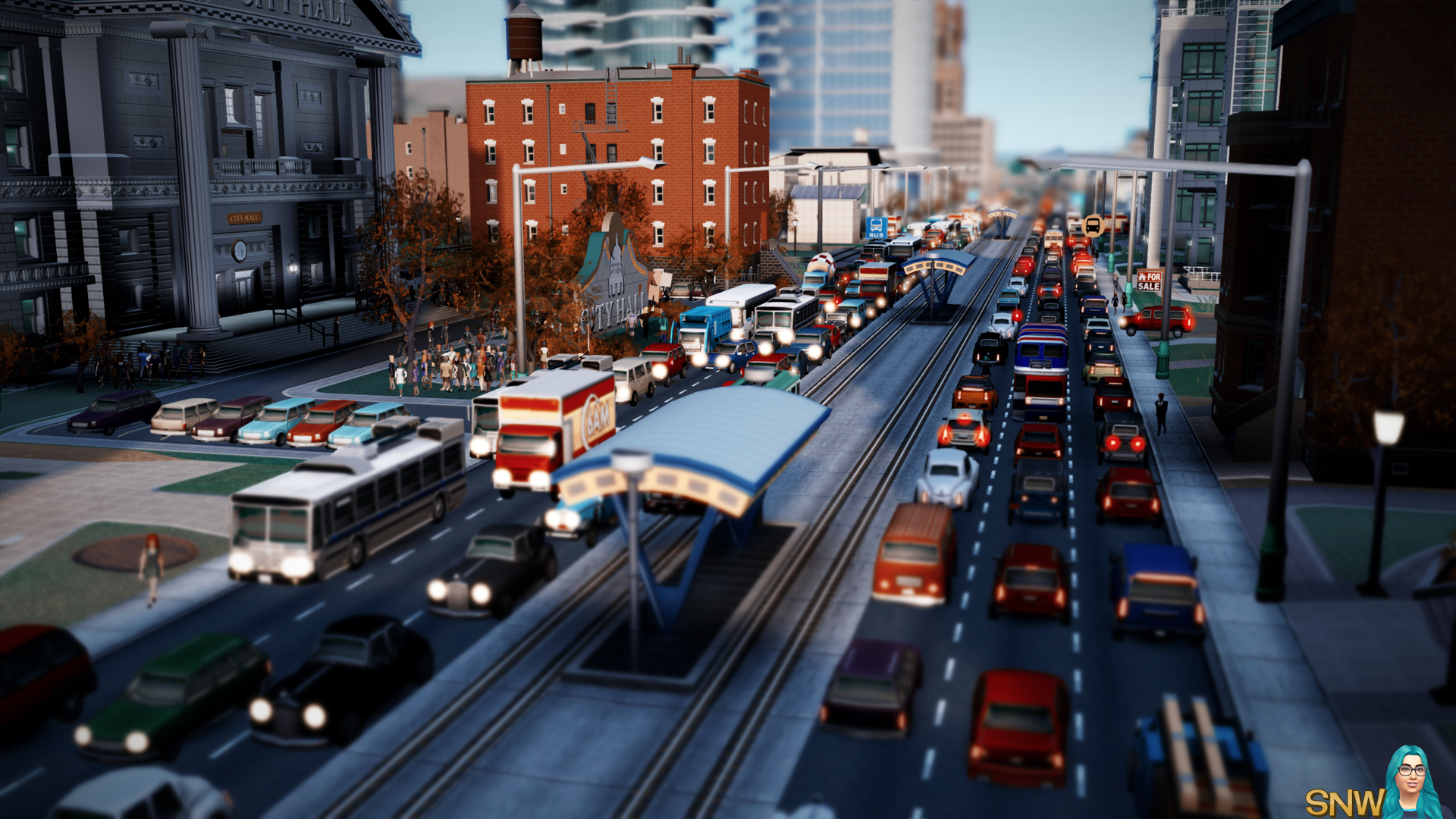
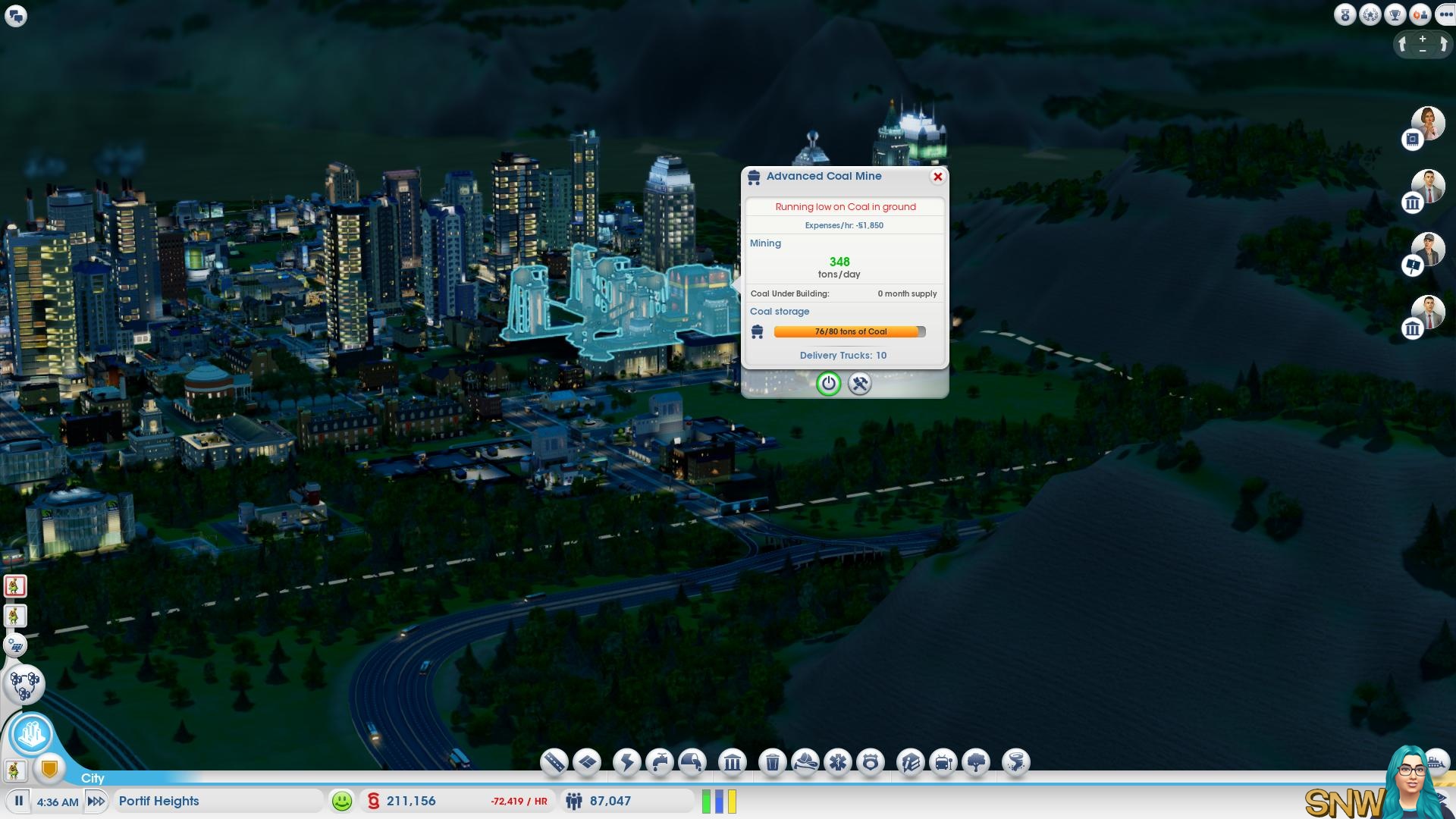
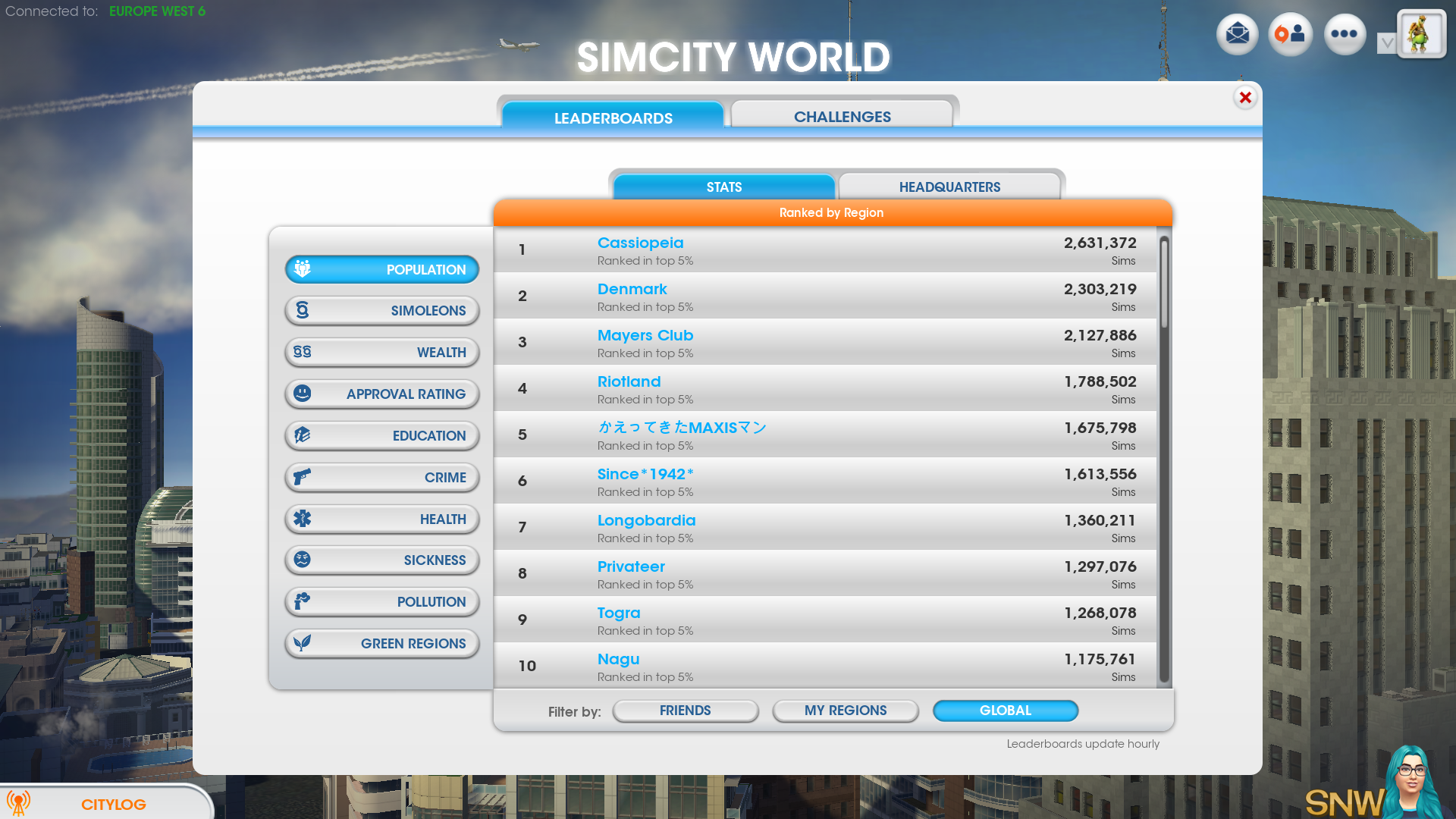

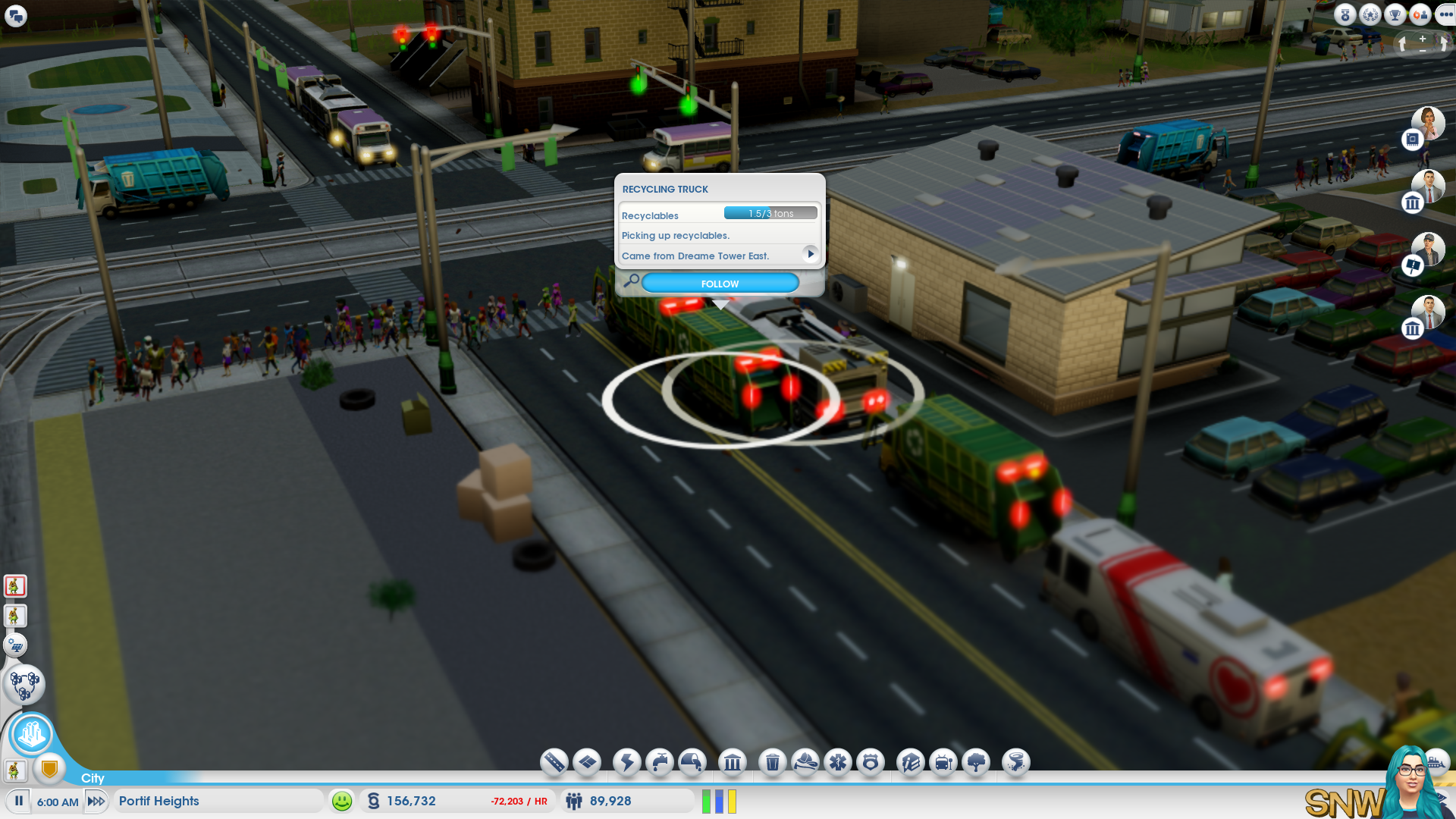
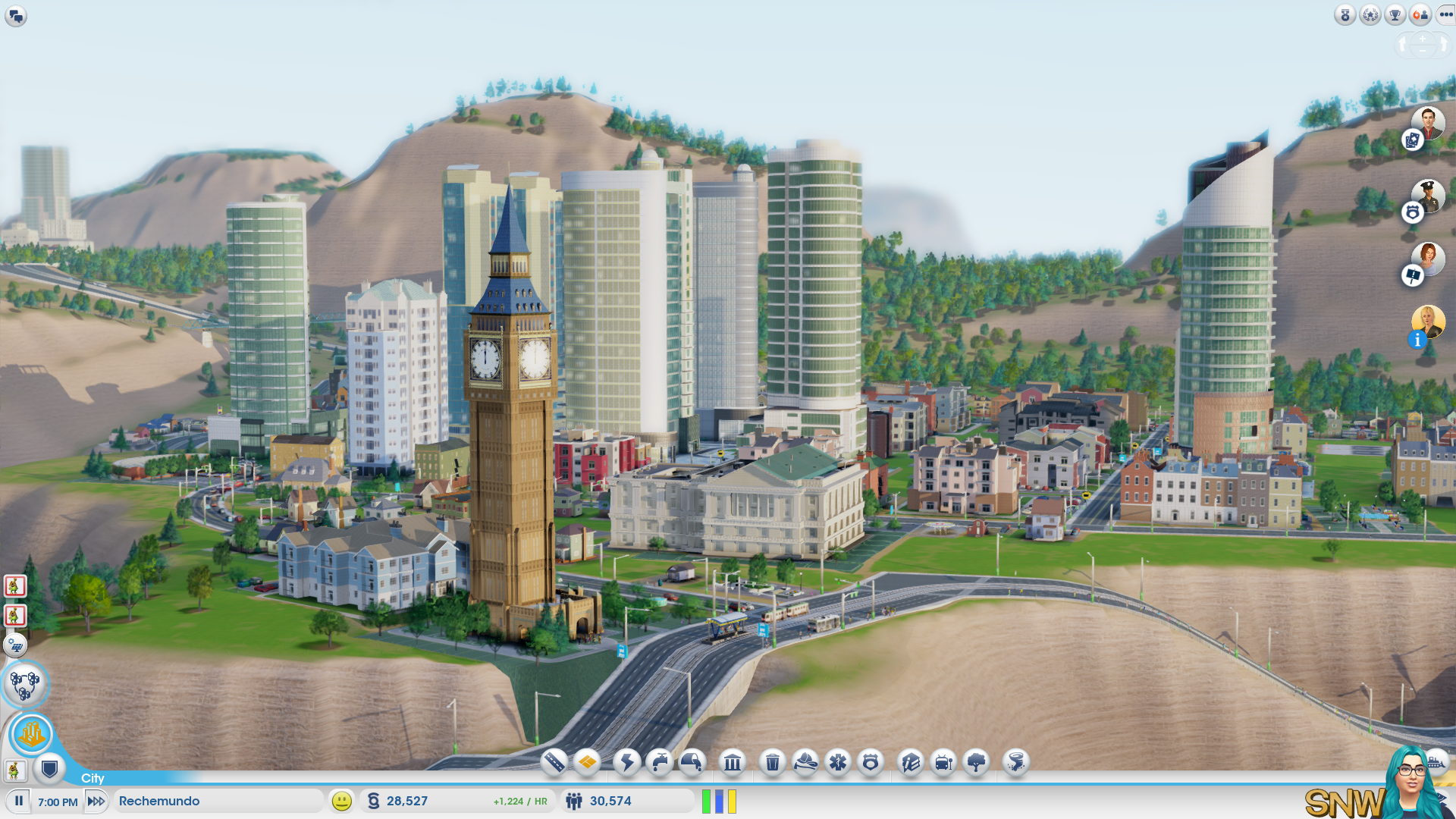
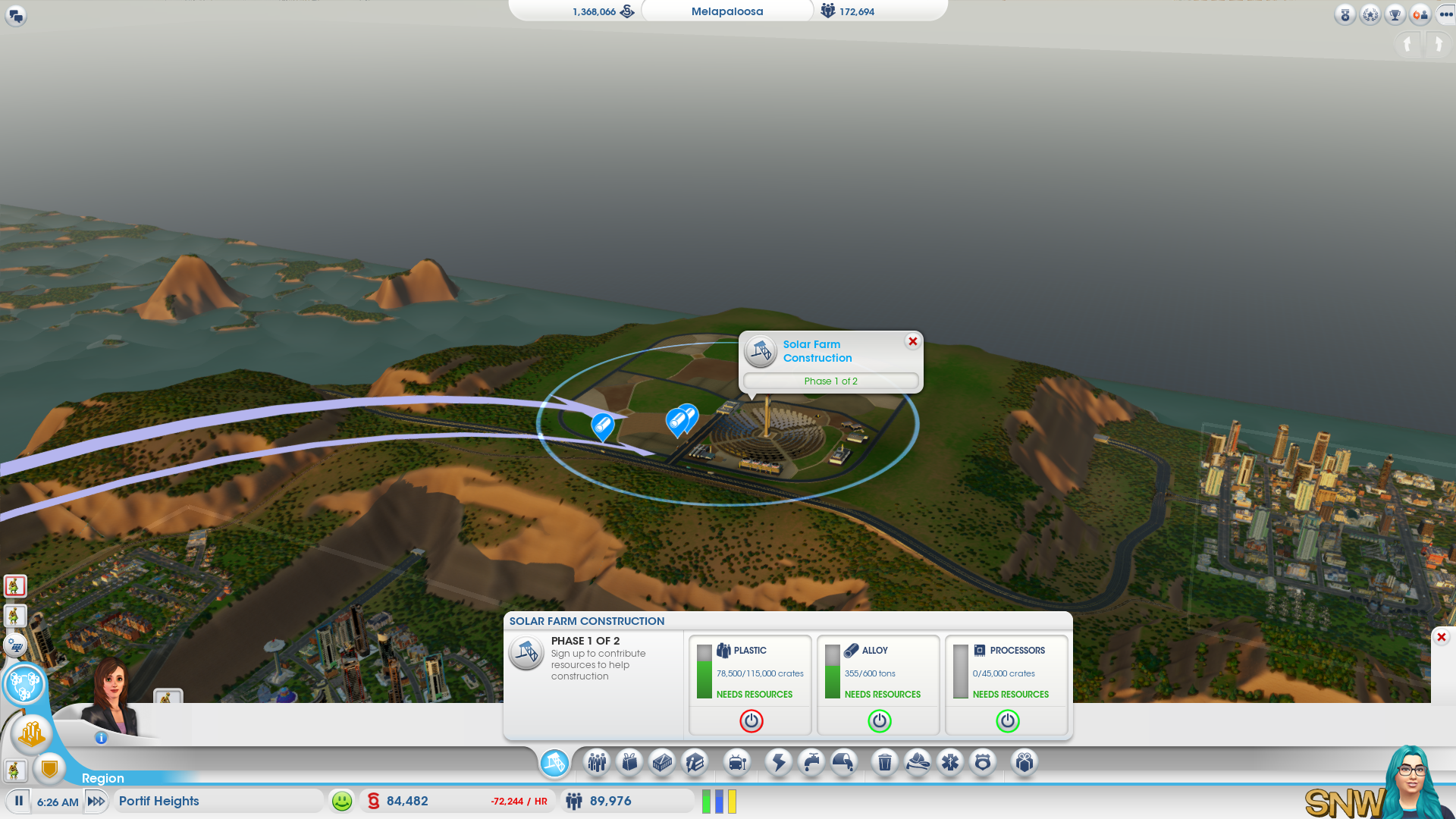
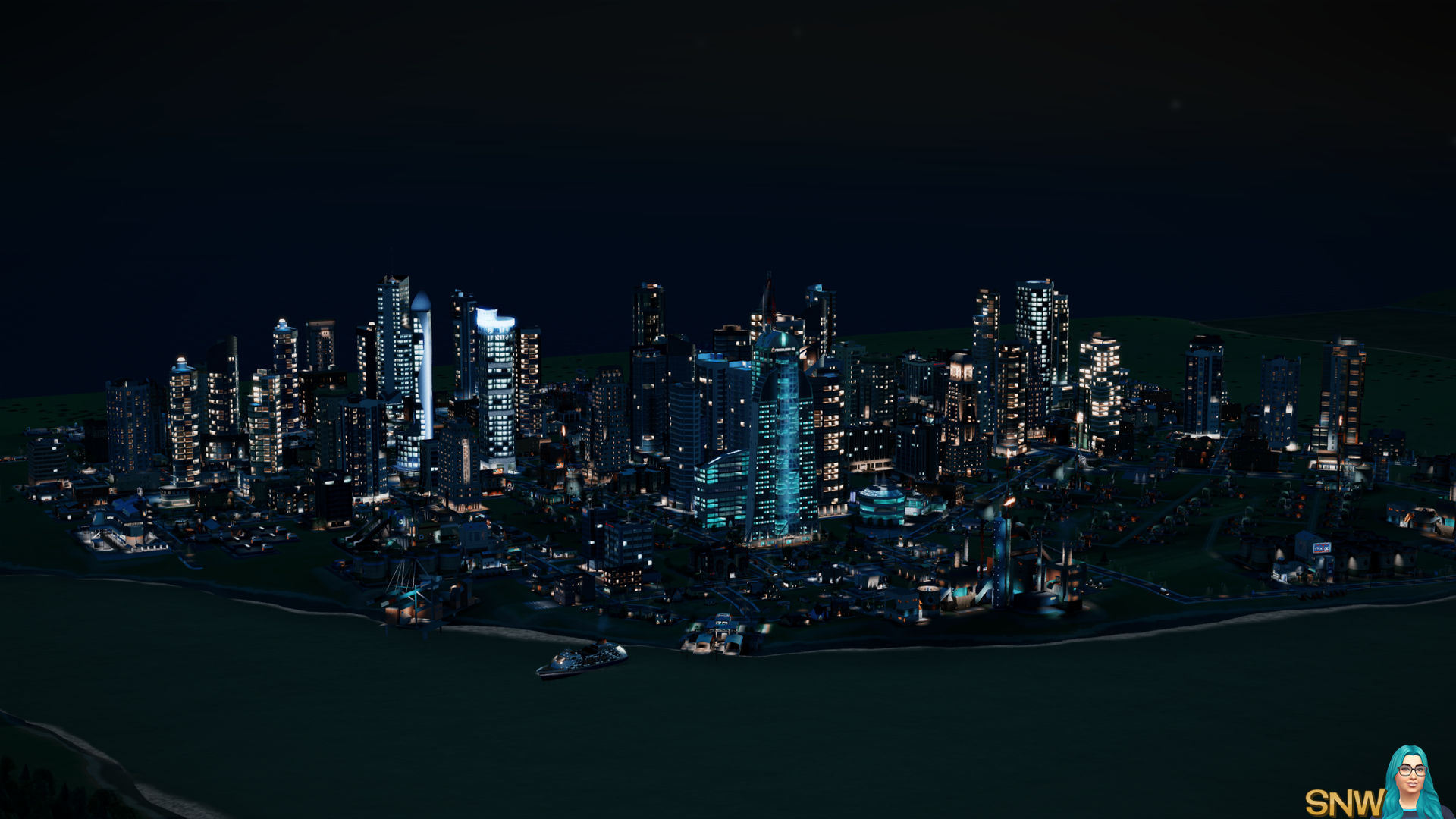
Introduction
It's been a while since SimCity - or "SimCity 2013" as you may call it - was released. This reboot of the franchise promised a lot of new features, a brand new simulation engine and multiplayer functionality. We've given it some time to ripe before playing judge. This is it - here's our verdict.
Just a quick note ahead: this review is based after playing the game with "2.0" patch; later patches came too late for the review.
Basic Gameplay
I won't go too deep into the gameplay essentials here. Read our three part preview if you want to know more. Essentially it boils down to this: build your own metropolis using tools such as roads, zoning and governmental buildings.
The first tool is the most important one: everything is connected to roads. Everything travels by road, including water, electricity, sewage and of course your Sims. This takes away a lot of pain to build your infrastructure. Simply start off by connecting your city to the region, add a few roads and designate the correct zones and your city will soon get its first few citizens. The region connection makes it possible for you to share vehicles, buy or sell utilities or send gifts to connected cities.
The region helps you share workers, jobs, utilities and more between your cities. Cities support each other and together actually let you achieve the goal of that metropolis. In the new version of SimCity each city can be controlled by different players. Regions contain 3 to 16 cities, allowing you to either start a small region by yourself or a larger region with your friends.
Specialization Required
The game also adds specialization tracks. You can specialize in mining, drilling, electronics, trading, gambling or tourism (you can also be guided to follow an educational track, but it's not part of the specialization menus). The specialization tracks require you to build a supply chain from raw materials to refined items which you can sell to the global market. Some tracks are related: mining and drilling will get you materials (plastic, metals and alloy) required for processors, TVs and computers in the electronics chain. Income from all these tracks will also count towards your trading specialization income, often making it possible to specialize in trading together with the other specializations. Gambling and tourism are also closely related, as you'll need touristic attractions (landmarks, mostly) to get gamblers - indeed, mostly tourists - in your town.
Each specialization track comes with a headquarter which needs to be upgraded to get to the next stage of the specialization. Each stage unlocks a new division for your headquarter which in turn unlocks new modules or buildings related to the track. For example adding the Engineering division to your Metals HQ will get you an advanced coal mine. Some unlockables are shared with the region, making it easier to quickly advance in the specialization track in another city.
As your city grows, you'll need to follow at least one of these specialization tracks to sustain your city. As you add or improve services - which your citizens will usually demand - costs will rise. Extra income is useful, and specialization will enable you to keep a positive budget. Especially if you want to build one of the great works you'll need the money to start it off. As such, specialization is required. This adds a new strategic layer to SimCity that we haven't seen in the franchise before.
City Shutdowns
That also means you'll have to let go of some income in the form of taxes: specialization buildings require a lot of space in the limited area you have. Cities are indeed very small and easily filled. If you specialize, you'll need to reserve roughly 25% of the space you have for specialization. That's without all the basic buildings you'll need in your city to get power, water, law enforcement and other services, garbage collection and whatever else you'll need. All this takes away valuable space for residential, commercial or industrial areas.
You may want to have your city focus on providing some utilities and services to other cities in your cluster. This sounds like a good idea, but doesn't work too well in practice. One city will have to overproduce something (e.g. electricity) for the others to purchase it. The actual income for the producing city is very limited, so you'll want to keep it somewhat limited. But as the neighbor cities grow, they'll demand more power. Two things may happen, depending on the way you play. Either you have to wait for your friend to produce more (if you're not the mayor of the producing city), or you have to constantly switch back and forth between the cities spending a lot of time in the loading screen to produce more on demand, let the simulation run for a while and wait until the region game has picked up all the changes.
Usually the quick solution is to simply start producing whatever you need yourself. Surely it'll cost some valuable space, but at least your city won't grind to a halt because you're lacking water or electricity - until you lack workers, that is. Altogether, the only way this really works if you can directly communicate with your friends in the region, you all play at the same time and the syncs happen quickly enough for the changes to pick up in time before problems occur. Unfortunately the game really lacks proper communication tools - the "region wall" simply doesn't work that well and the game also doesn't warn you that you're reaching supply limits until it's too late and buildings actually shut down because there's no power or water. Also, if your friend has stopped playing the game entirely - or at least the region - for whatever reasons, there are no options of taking over the neighbor town so you can actually get where you want.
Specialization buildings play an important role in your regular income, but are also big consumers of utilities. As such they'll quickly shutdown if supply stalls. If you have a coal mine, it'll shut down. The smelting factory will soon run out of supply - any coal left at the mine is not transported anymore either - causing production to halt. Next up are the processor factory followed by the consumer electronics factory, if problems last long enough. Meanwhile you're still paying operation costs for all these buildings, causing your city to go bankrupt even quicker.
What makes this more problematic is that cities are clustered in groups of usually 3 or 4 cities in the region. Each cluster is a group of connected cities - that is, cities that are connected by road/highway - and a great work. Whenever you want to share something, there must be a road connection between the two cities. As such, even if you are playing a large region, you're really only working in isolated clusters at best. Even sharing helicopters cannot be done if there's no road connection, which is silly at best. A great work also provides several benefits (e.g. energy, workers, tourists, knowledge etc.) - but only to the connected cities. Apart from the global benefits of unlocked buildings, this kind of defeats the purpose of having large regions work together - they're just small groups of cities.
Traffic Bottlenecks
Another reason which may cause your city to completely shut down in a similar fashion is traffic. Most cities have a single entrance to the city, through the highway. At least until the 2.0 patch, this was a major bottleneck. Miles and miles of traffic jams caused trading trucks to get stuck. This means no trading, therefore no specialization income (unless you got a trading port and are able to trade by rail or water). Similarly no tourists are able to get into your town if you happened to specialize in gambling or tourism. All in all: no income. It seems that the first of probably multiple big patches has fixed some of the major issues, causing fewer shutdowns. Still: there are many factors which may shut down whole chains of buildings and your city in general. This doesn't make the game difficult, it makes it frustrating: design flaws or bugs make it nearly impossible get a flourishing city and keeping it that way.
Finally, raw resources are limited. This is not surprising in itself, except that usually you'll have supply that lasts roughly 5-10 days if you have to believe the building tooltips. Depleting the resources in a short time span is fairly easy, which means you can't slowly build the supply chain. You have to invest quickly, stock up resources in trade houses for a while so you can sell everything in one day, make the target profit and upgrade the HQ to get to the next stage for more profit. Part of this may be due to the current lack of a global - fluctuating - market (note: this feature is reportedly enabled in the latest patch, but we haven't been able to check this out yet). Prices have been static since the problematic launch and there's no chance of you getting lots of cash for few resources (or vice versa). This lack also completely marks the actual trading specialization obsolete: almost three months after launch, you still can't "buy low, sell high" - although the future is looking brigher in that area.
Always Online
As everybody will know by now is that the launch of SimCity was problematic - and that's putting it mildly. In the first week many people were unable to play the game because servers were continuously overloaded. Capacity was increased, features were disabled and even now the game is not as promised. We cannot review the whole SimCity World aspect yet, as it's simply not yet live. No leaderboards, no challenges, no global market. It seems that all that was achieved in the past two months was getting the game to actually start and re-enabling cheetah speed. A big 2.0 patch was released and did solve many problems in the earlier versions of the game, but so far it's hard to judge the full potential of the game - simply because it's still not all there.
All of this stems from the decision to make SimCity an always online experience. No matter the reasons - DRM or a developer decision - it's caused a lot of problems. Problems which would be much smaller if there was at least an option to play a region offline, on your own PC, without a server in between. Sure, the region play is fun with friends, but making it a requirement has proven to be a bad choice.
So, is there anything good?
Despite all of the above, there are still good aspects of the game. The graphics, sound effects and music are all good. There are many small details to discover showing off the level of detail Glassbox is capable of. You can follow individual sims and cars and get detailed looks at the (current) performance through the data layers - unfortunately there's little historic data available. The whole city feels alive and it's in constant motion. It's fun - but often also informational - to follow your trading trucks around to see where they're going.
The UI is also intuitive and helps you along: if problems are found in a specific area, the related buttons will be highlighted. When you click those buttons, the category's advisor will tell you what problems are at hand for you to solve. This will often help you detect problems in time, or at least before it's far too late. Quick buttons near the advisor will even help you jump to the specific area in your city in most cases.
Conclusions
All in all, we're left with many mixed feelings. At its core, the game shows a lot of potential. There are many interesting gameplay aspects which work well enough. The specialization is a nice new touch to the franchise, while the game also keeps true to its core by having general zones with some added ploppables for services. At some point your city will boom with high rises, which is rewarding to see.
Unfortunately there are too many problems to make the game as addictive as previous installments. City sizes are far too small whereas many buildings take up too much space. Too many aspects can quickly shut down entire cities in a frustrating manner. GlassBox is an attempt to move from statistical simulation to actual simulation. It sounds great, but in reality it seems like trying to solve problems which weren't there to begin with.
The region play is interesting at first, but as friends stop playing that too becomes frustrating: you can't easily take over such cities. All you can do is observe other cities, which is nothing more than a nice (but otherwise useless) gimmick. I've already found myself abandoning cities and regions - without actually clicking that button - and start my own private region simply because of that aspect. Your game's success is far too dependant on how active other players in your region are, which in my experience often turned out to be a disappointment.
That means it is indeed quite hard to recommend this new SimCity. What could've been so much better - the previews were promising, and it seems like it will indeed become better in the future - is not much more than a frustrating first attempt so far. The potential is hidden somewhere in there, but a lot of work is still needed to get this game where it should be. Perhaps we'll re-review the game once it's improved in a year or so from now. For now you may want to pick up SimCity 4 Deluxe for a lot less money if you want to play a good city simulation game.













